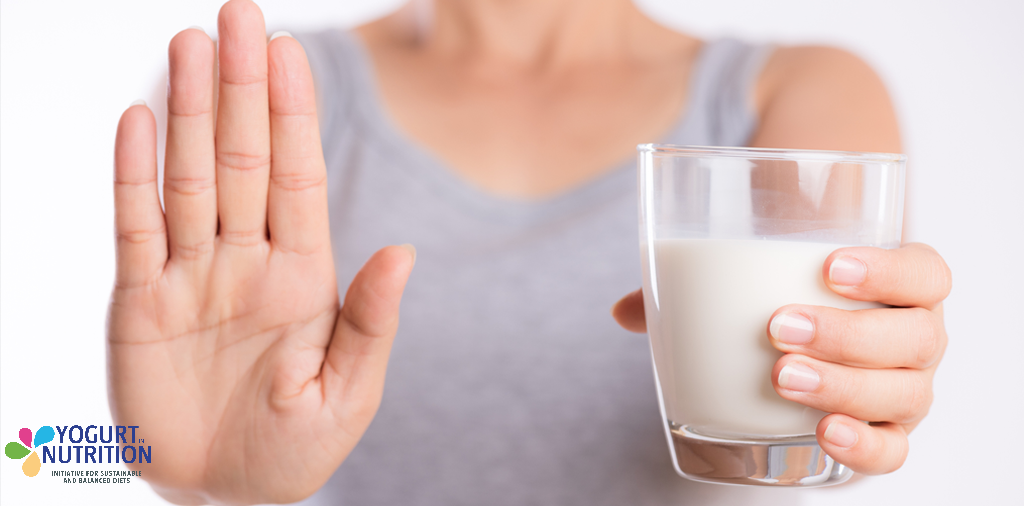What is lactose?
Lactose is a natural sugar found in milk and other dairy products. It can be broken down by the enzyme lactase in the small intestine into glucose and galactose, two simpler sugars that are readily absorbed into the bloodstream.
What is lactose maldigestion ? Lactose intolerance ?
After weaning, we produce less lactase and our ability to digest lactose declines. It is known as lactose maldigestion. Undigested lactose reaching the colon is broken down by the gut microbiota, resulting in the production of short-chain fatty acids (SCFAs) and gases. In most people, this maldigestion produces no noticeable symptoms (1,2,3).
When lactose maldigestion gives rise to symptoms such as bloating, cramps, diarrhea and flatulence, this is called lactose intolerance (4).
Lactose intolerance: Should I avoid dairy products ?
The majority of adults and adolescents with diagnosed lactose intolerance can tolerate up to 12 g of lactose with few or no symptoms, preferably in small amounts across the day, during or at the end of a meal (1).
Dairy products vary in the amount of lactose they contain (5):
- Some cheeses contains low or no lactose (cheddar, provolone, mozzarella, Grana padano, camembert, etc.).
- A reduced level of lactose is found in yogurt containing two active bacterial cultures that produce lactase which breaks down some of the lactose in yogurt. The bacteria survive their passage through the gut and the bacterial lactase helps further with digestion of lactose in the small intestine. Unlike milk, yogurt’s semi-solid state benefits lactose digestion by slowing transit through the gut (6).



